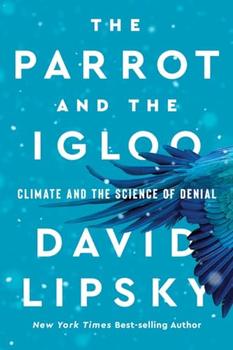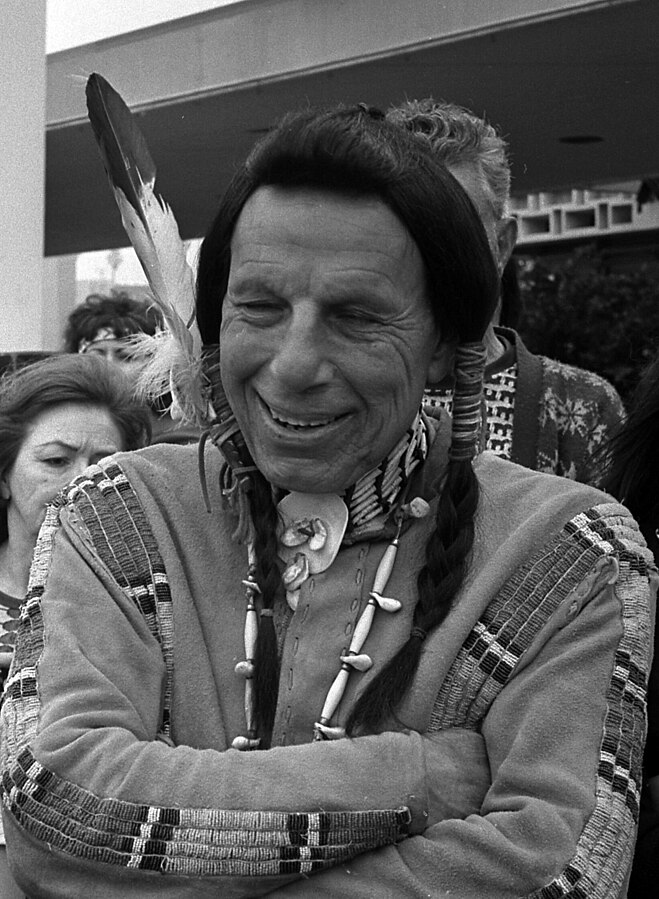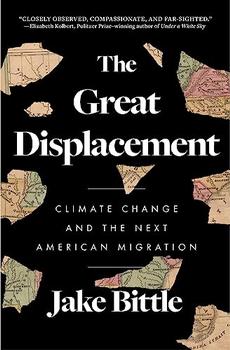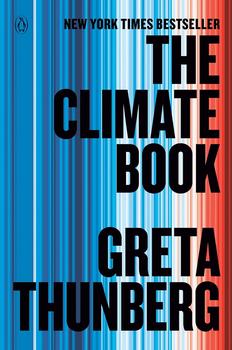Summary | Excerpt | Reviews | Beyond the book | Read-Alikes | Genres & Themes | Author Bio

Climate and the Science of Denial
by David LipskyThe New York Times best-selling author explores how "anti-science" became so virulent in American life—through a history of climate denial and its consequences.
In 1956, the New York Times prophesied that once global warming really kicked in, we could see parrots in the Antarctic. In 2010, when science deniers had control of the climate story, Senator James Inhofe and his family built an igloo on the Washington Mall and plunked a sign on top: AL GORE'S NEW HOME: HONK IF YOU LOVE CLIMATE CHANGE. In The Parrot and the Igloo, best-selling author David Lipsky tells the astonishing story of how we moved from one extreme (the correct one) to the other.
With narrative sweep and a superb eye for character, Lipsky unfolds the dramatic narrative of the long, strange march of climate science. The story begins with a tale of three inventors—Thomas Edison, George Westinghouse, and Nikola Tesla—who made our technological world, not knowing what they had set into motion. Then there are the scientists who sounded the alarm once they identified carbon dioxide as the culprit of our warming planet. And we meet the hucksters, zealots, and crackpots who lied about that science and misled the public in ever more outrageous ways. Lipsky masterfully traces the evolution of climate denial, exposing how it grew out of early efforts to build a network of untruth about products like aspirin and cigarettes.
Featuring an indelible cast of heroes and villains, mavericks and swindlers, The Parrot and the Igloo delivers a real-life tragicomedy—one that captures the extraordinary dance of science, money, and the American character.
Lipsky's writing is quick-witted and highly entertaining. He expertly manages the tone—moments of humor balance out the often-grim subject matter without trivializing it. His depiction of the people involved is personal and vivid, full of funny descriptions and insightful commentary. The Parrot and the Igloo is a disturbing breakdown of how anti-science rhetoric gained first a foothold, and then a major following in American politics. Well-researched and captivatingly written, it's a must-read for people seeking to understand how climate change became the subject of such vicious denial...continued
Full Review
(660 words)
This review is available to non-members for a limited time. For full access,
become a member today.
(Reviewed by Katharine Blatchford).
 David Lipsky's history of climate change denial, The Parrot and the Igloo, exposes many of the strategies deniers have used to prevent governmental action on environmental issues. One of the key approaches has been to shift responsibility for pollution off of industries and onto individuals. An excellent example of this strategy in action is the famous 1971 public service announcement produced by anti-litter nonprofit Keep America Beautiful. First aired on Earth Day, the ad showed an ostensibly Native American man steering a canoe down a river covered in floating trash, with industrial smokestacks puffing away on the banks. The ad has a brief voiceover: "Some people have a deep, abiding respect for the natural beauty that was once this ...
David Lipsky's history of climate change denial, The Parrot and the Igloo, exposes many of the strategies deniers have used to prevent governmental action on environmental issues. One of the key approaches has been to shift responsibility for pollution off of industries and onto individuals. An excellent example of this strategy in action is the famous 1971 public service announcement produced by anti-litter nonprofit Keep America Beautiful. First aired on Earth Day, the ad showed an ostensibly Native American man steering a canoe down a river covered in floating trash, with industrial smokestacks puffing away on the banks. The ad has a brief voiceover: "Some people have a deep, abiding respect for the natural beauty that was once this ...
This "beyond the book" feature is available to non-members for a limited time. Join today for full access.

If you liked The Parrot and the Igloo, try these:

by Jake Bittle
Published 2024
The untold story of climate migration—the personal stories of those experiencing displacement, the portraits of communities being torn apart by disaster, and the implications for all of us as we confront a changing future.

by Greta Thunberg
Published 2024
We still have time to change the world. From Greta Thunberg, the world's leading climate activist, comes the essential handbook for making it happen.